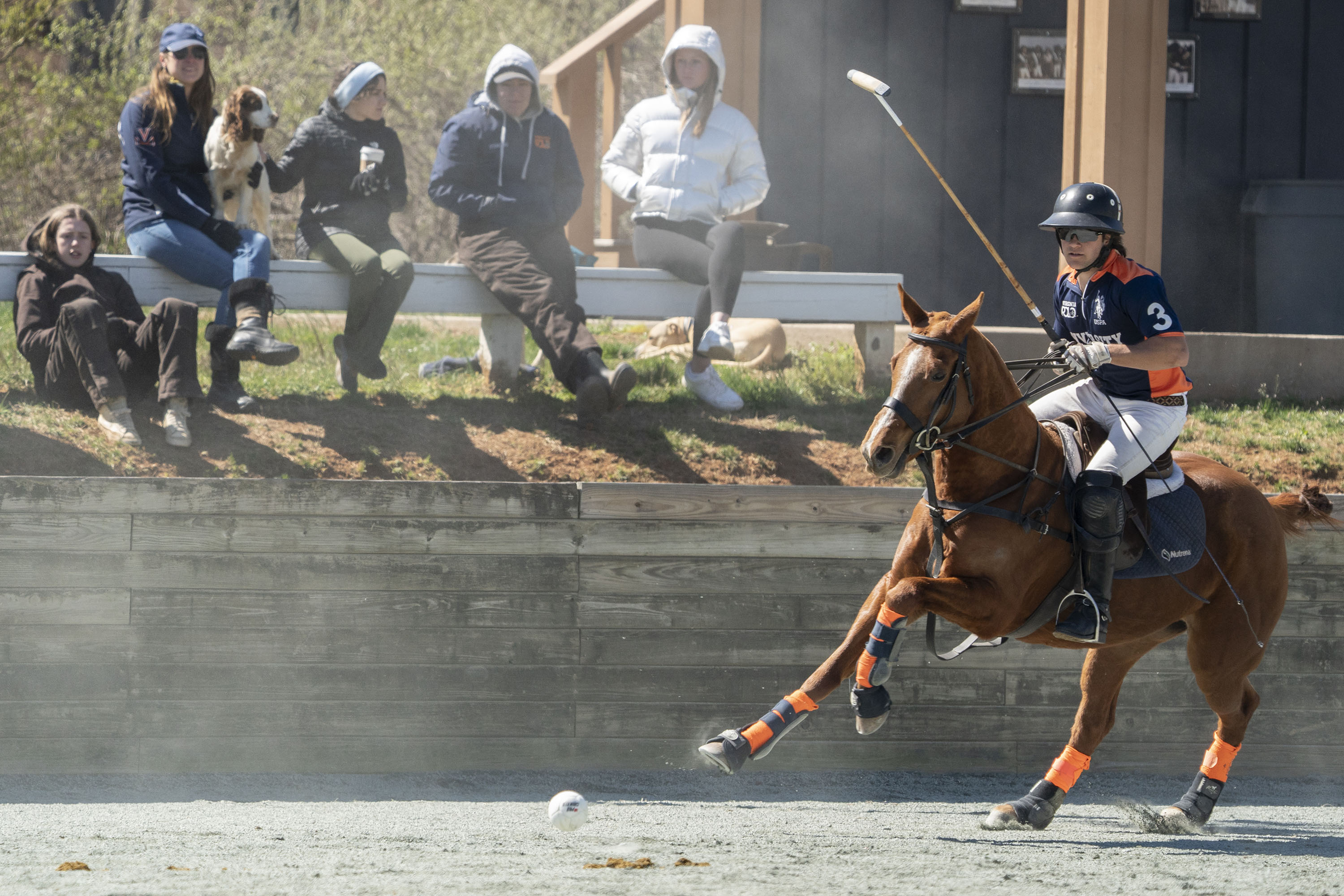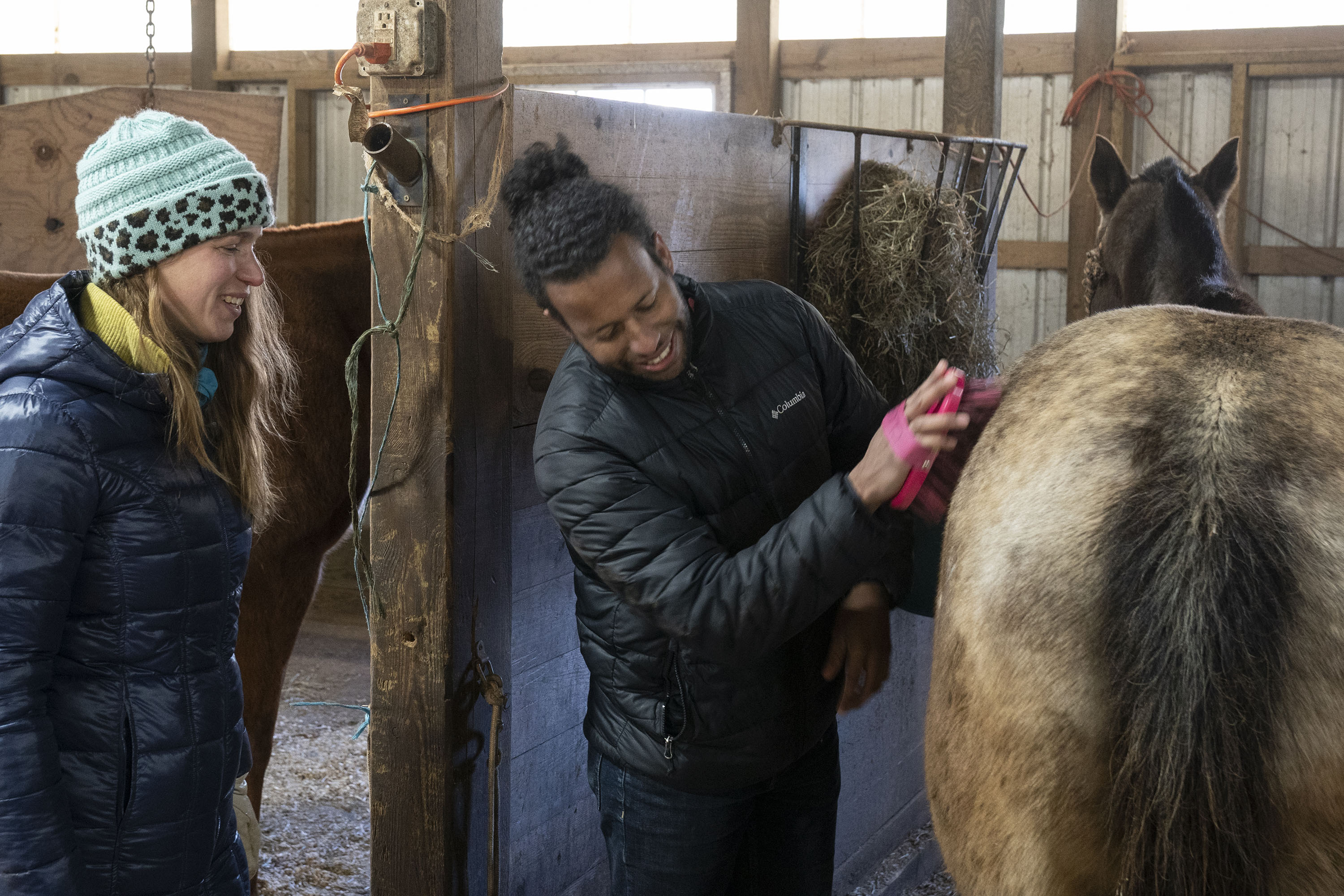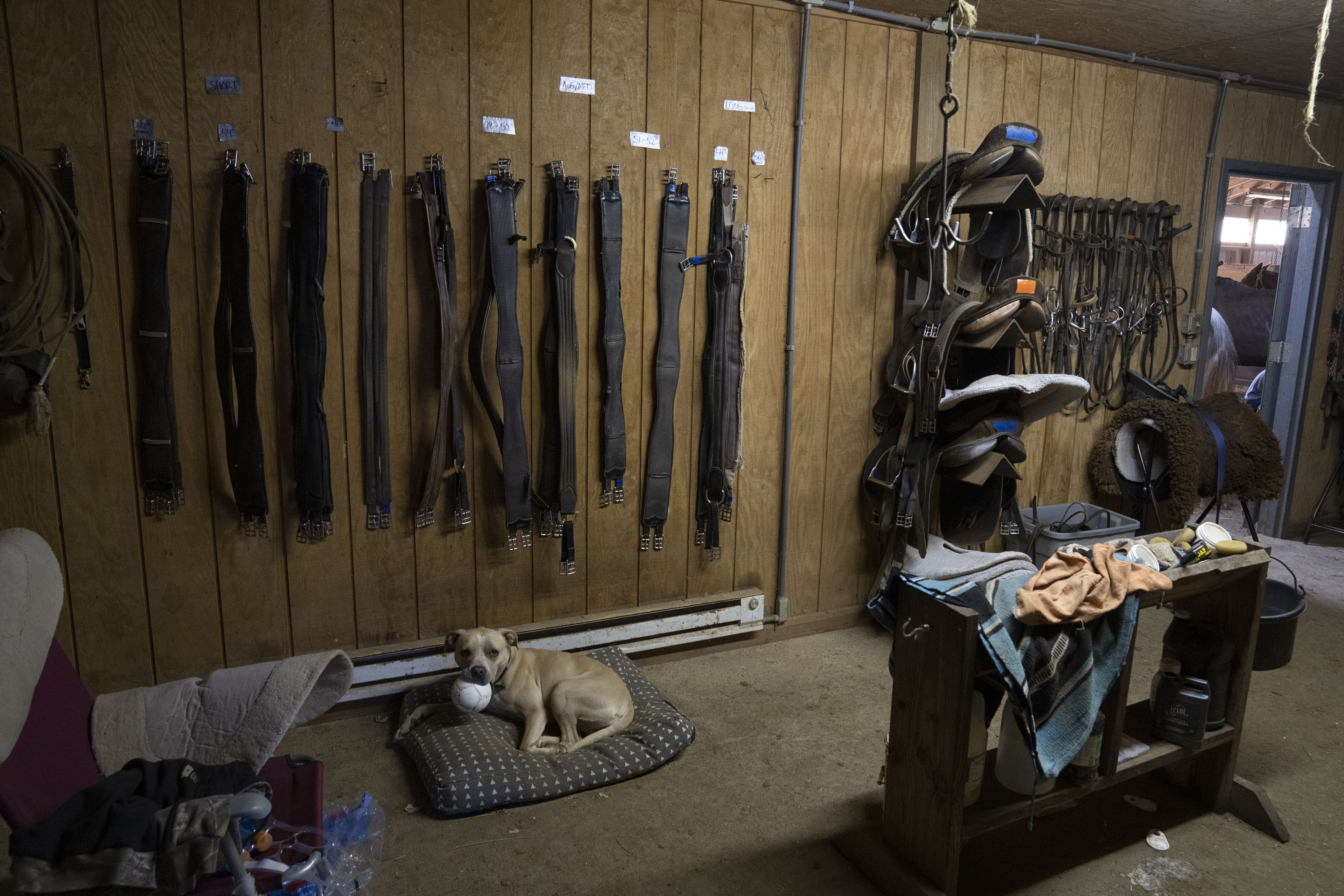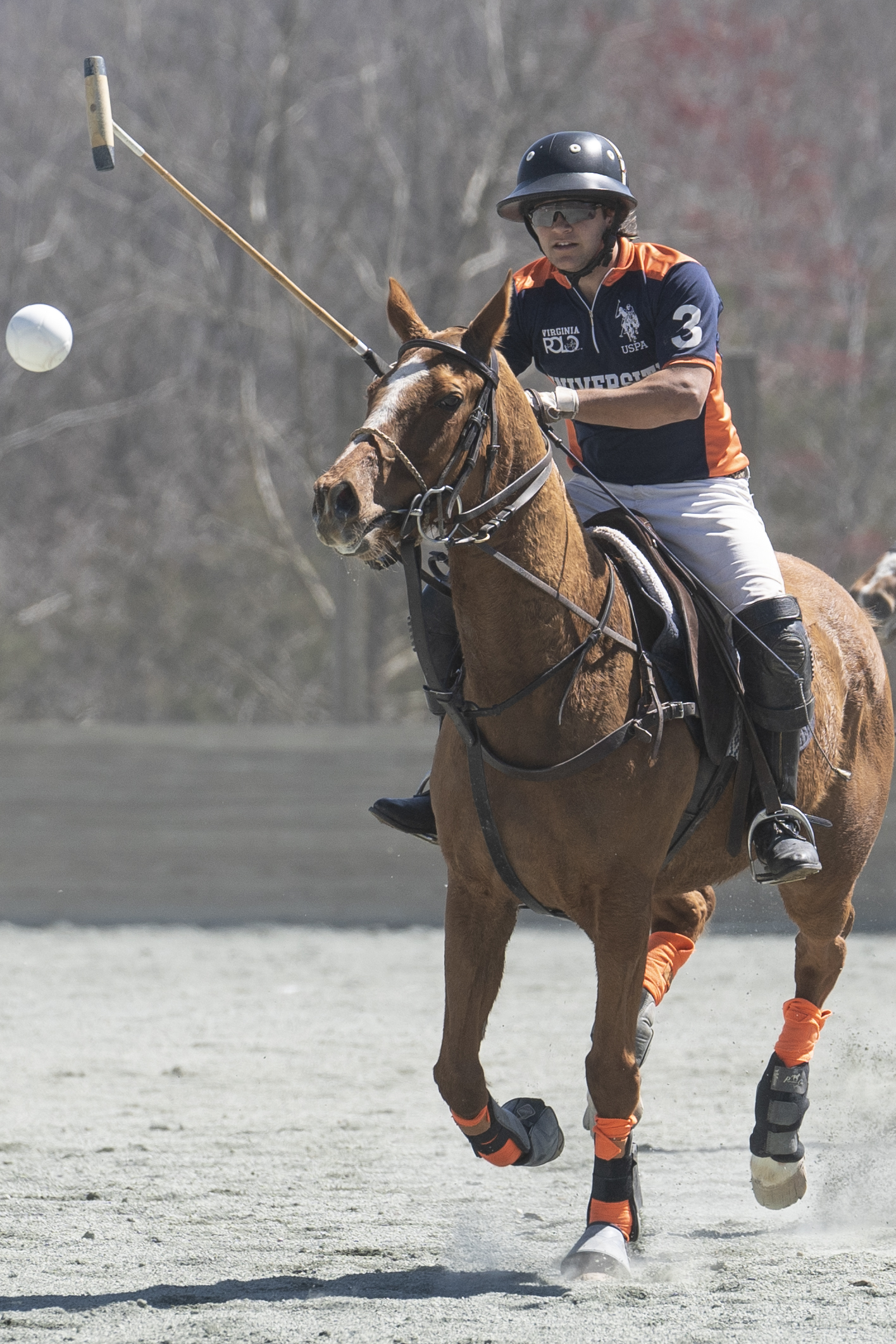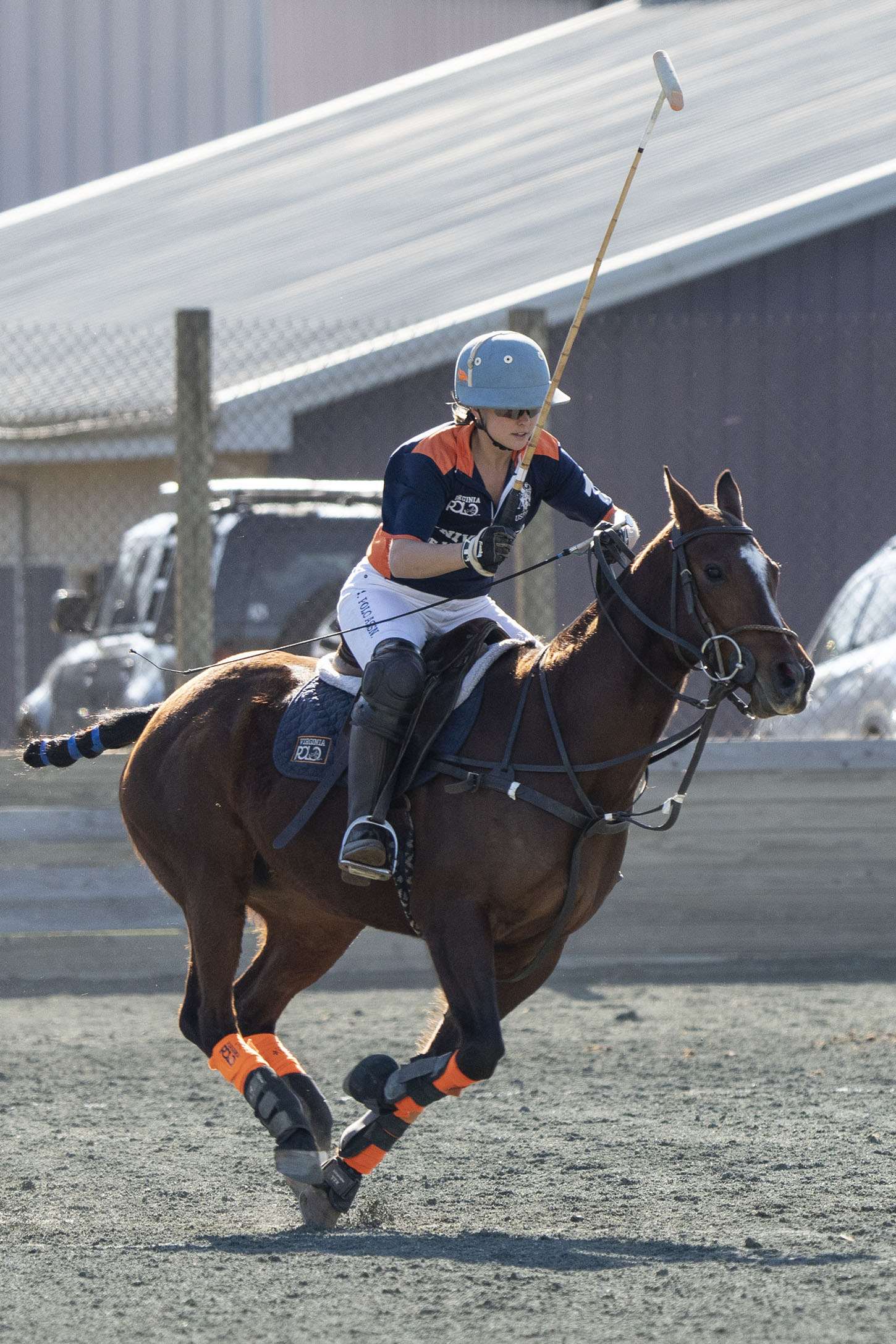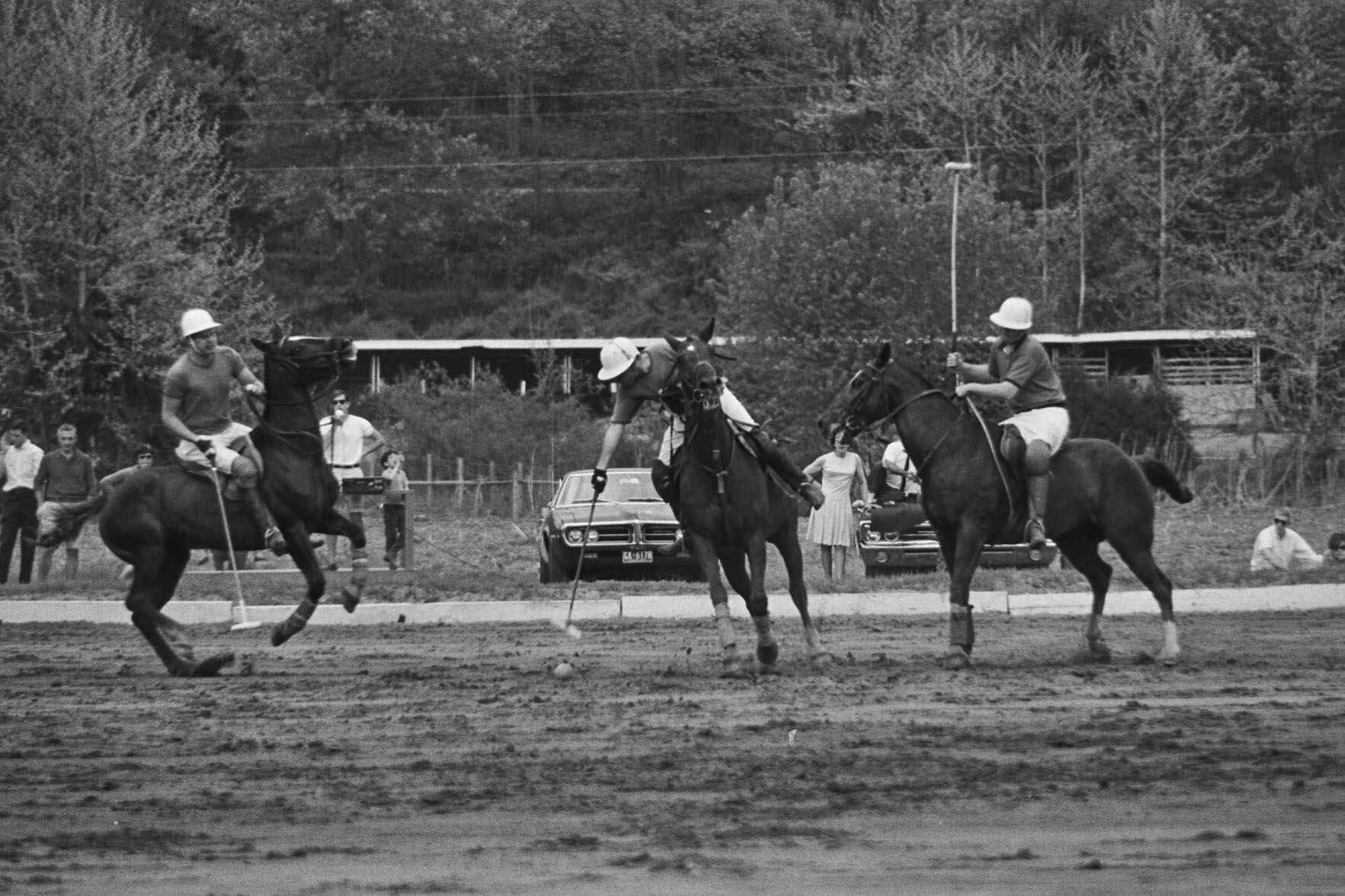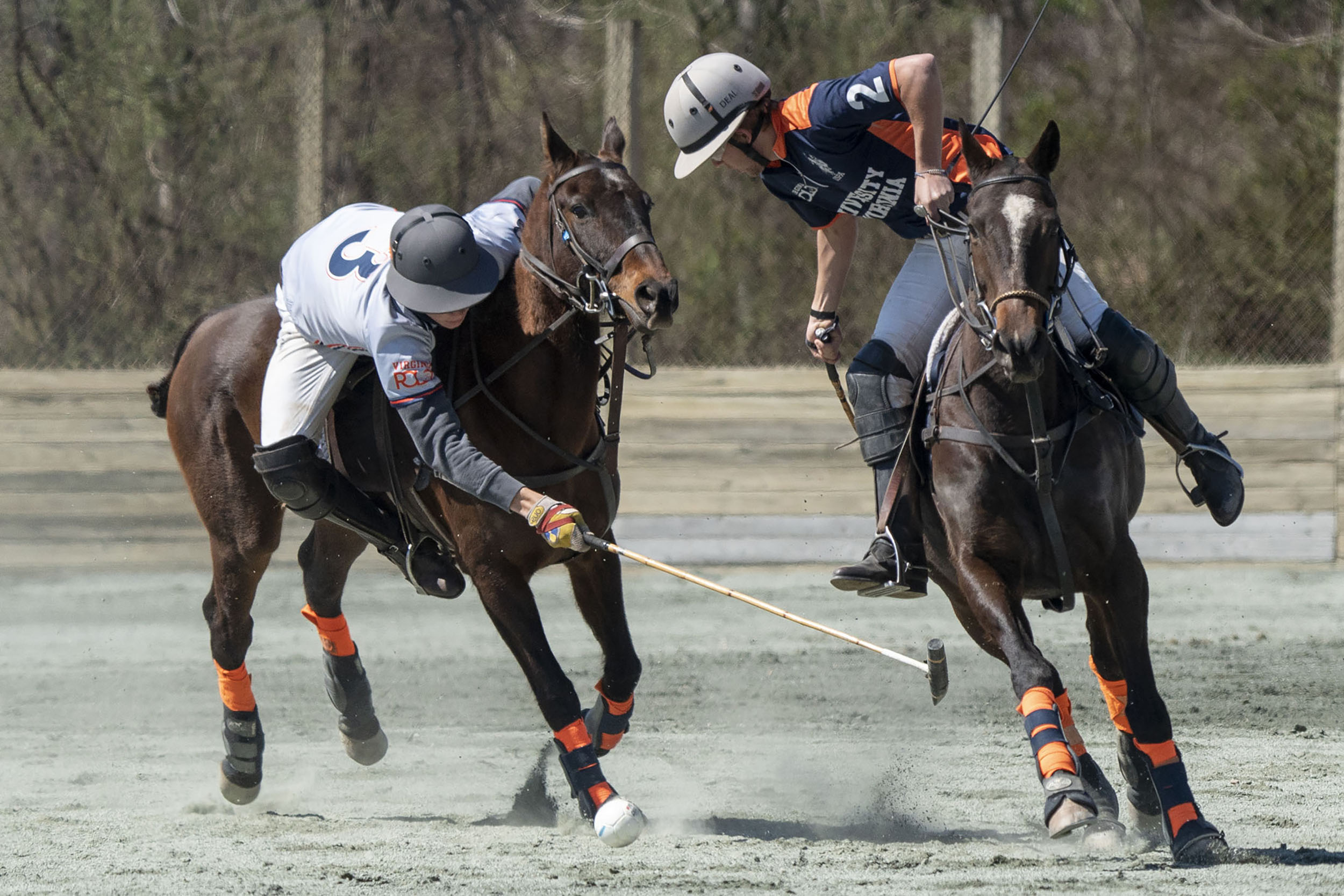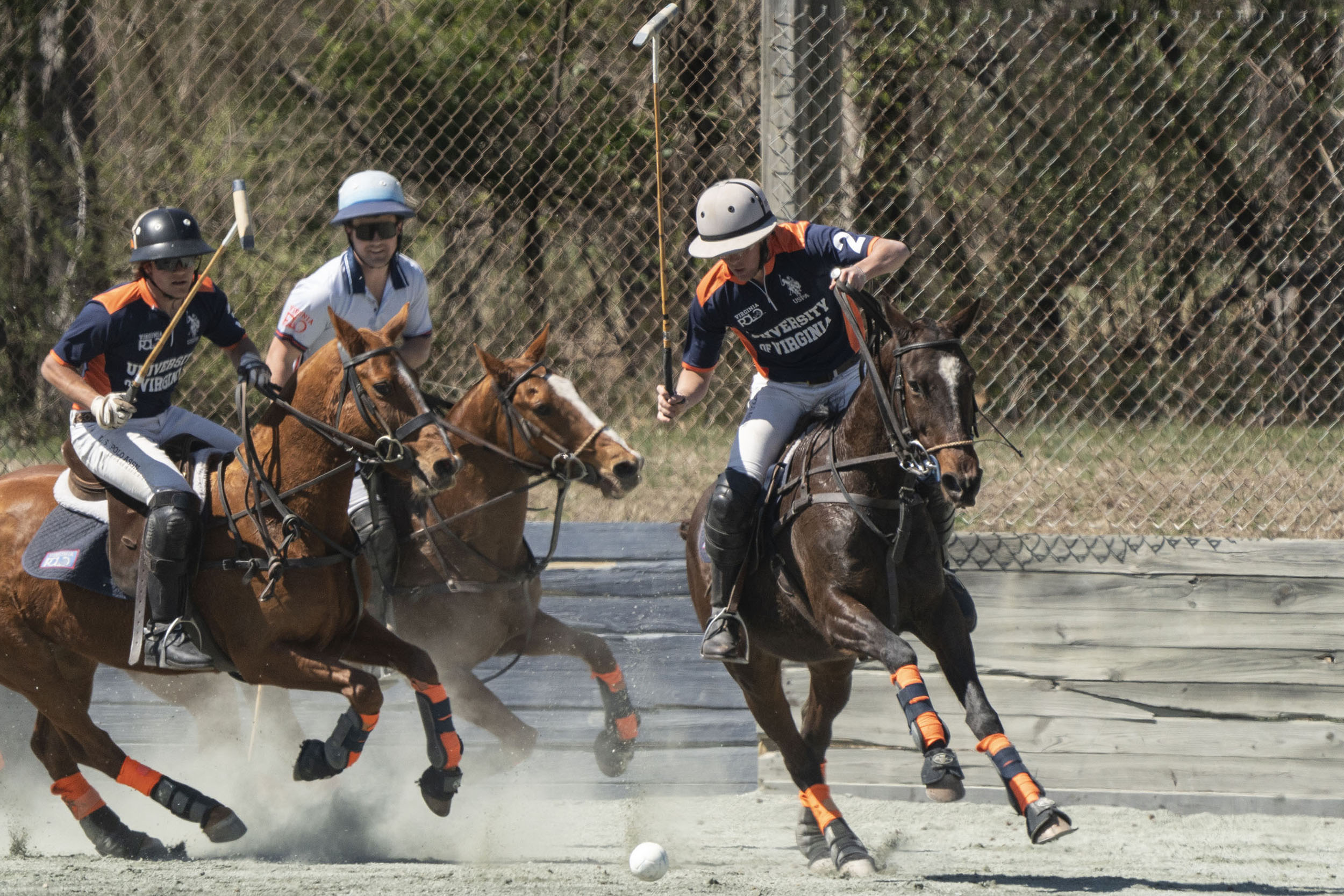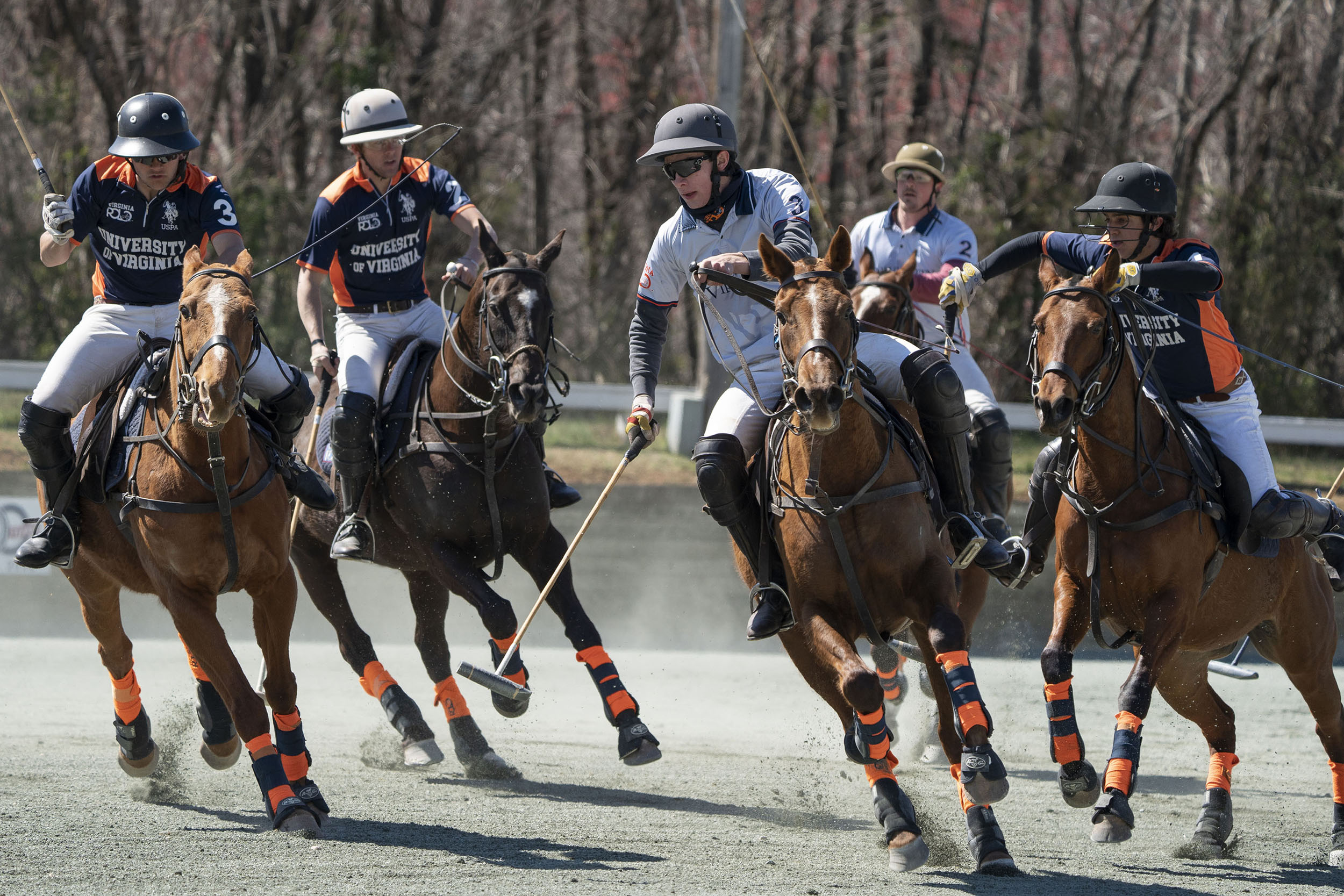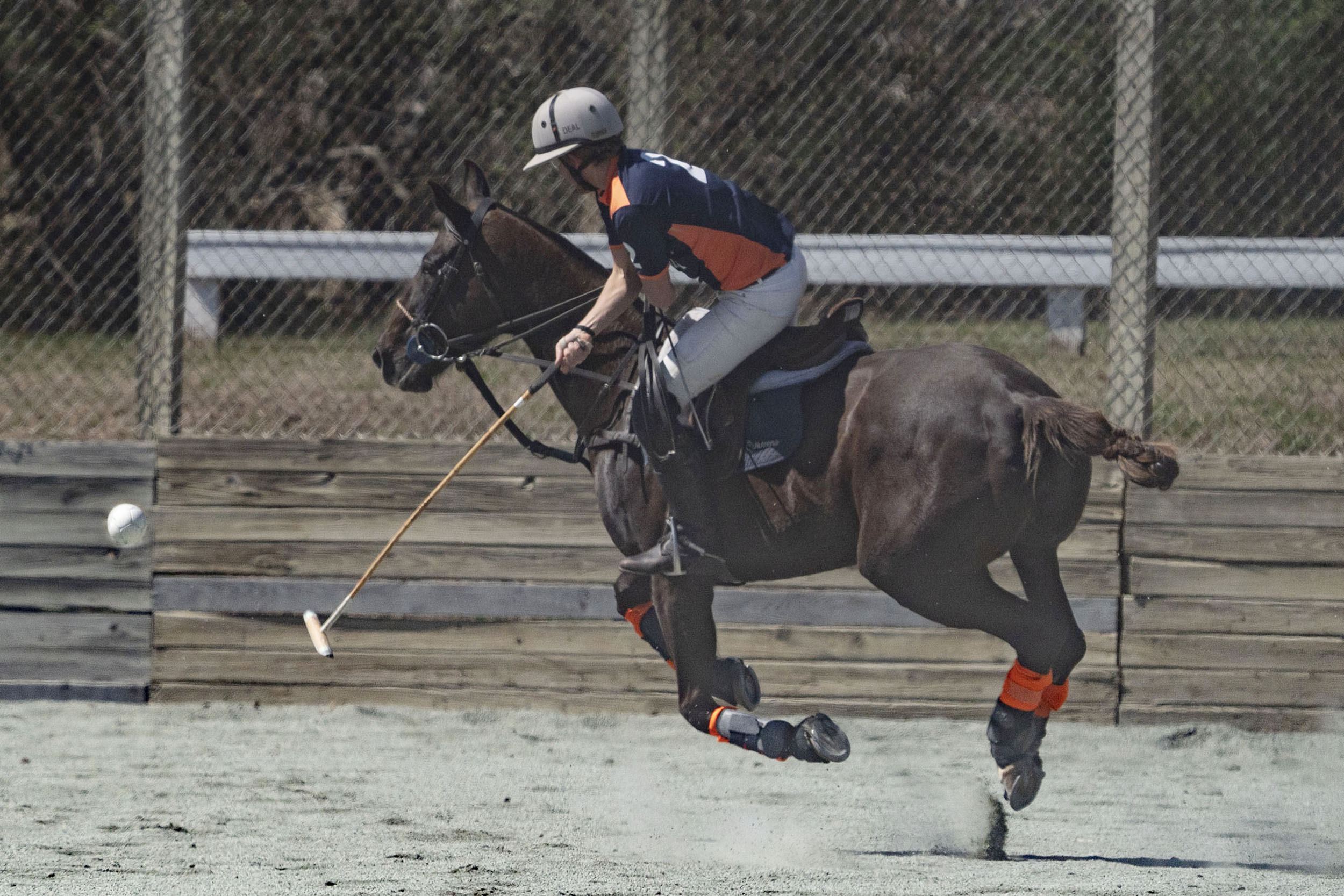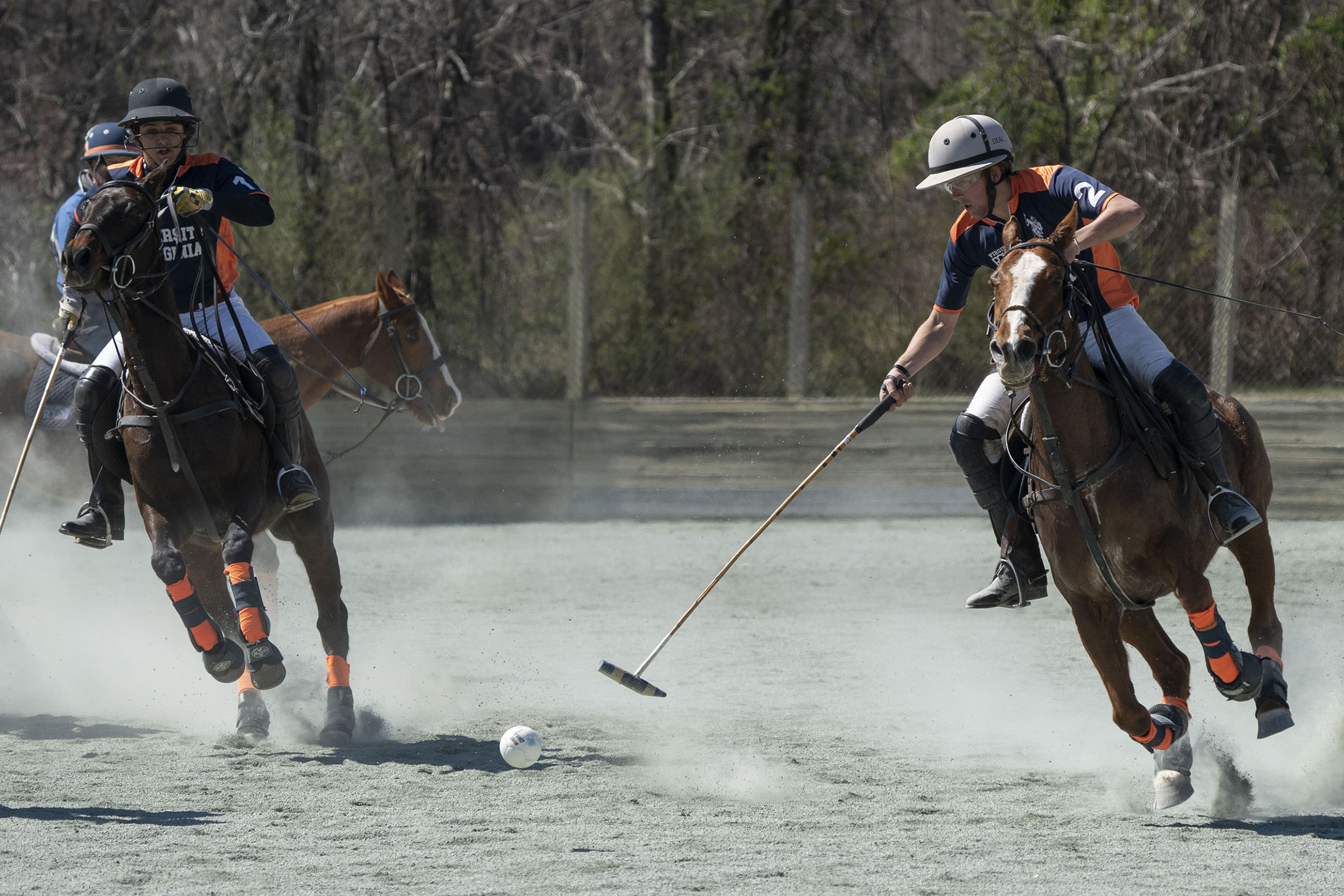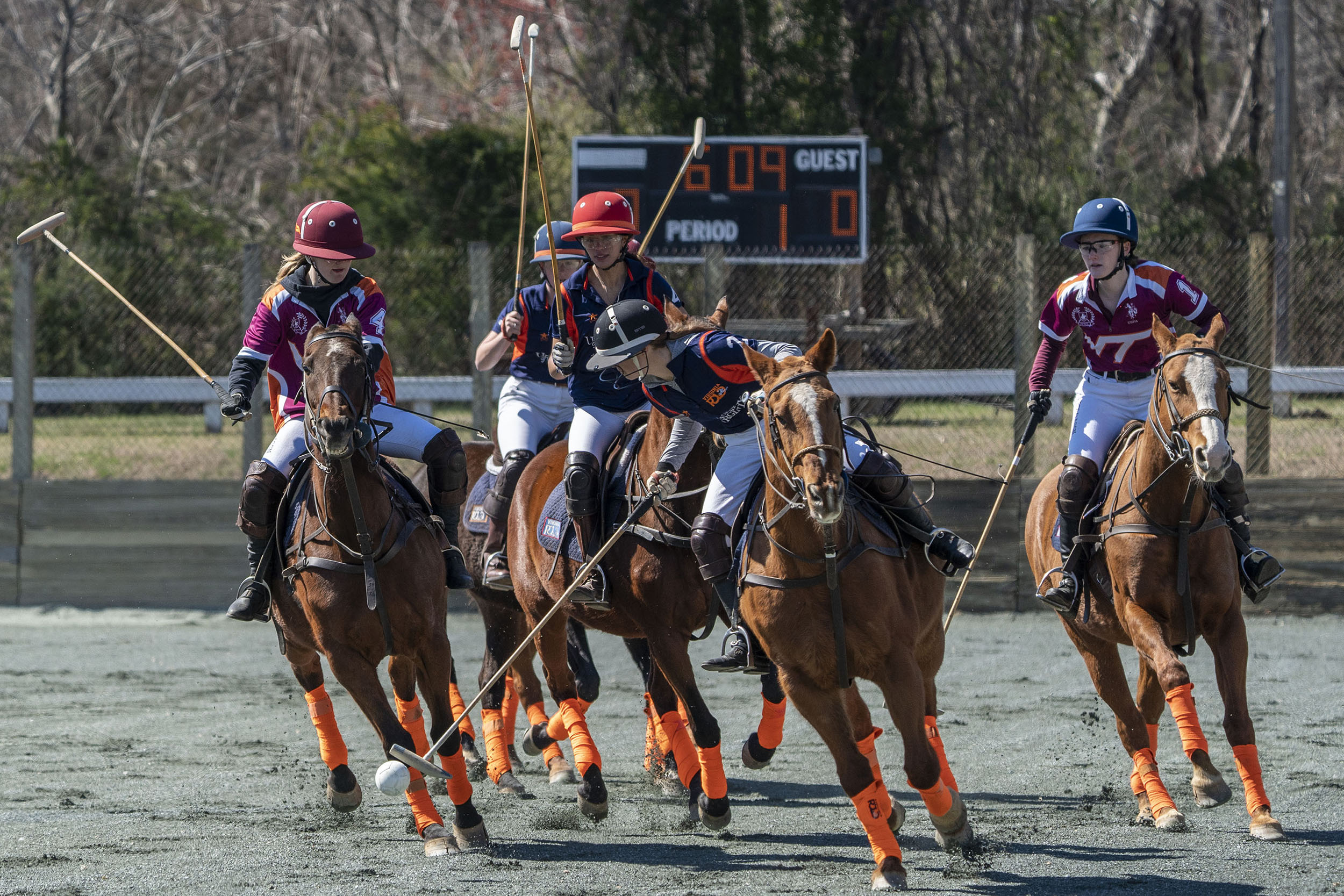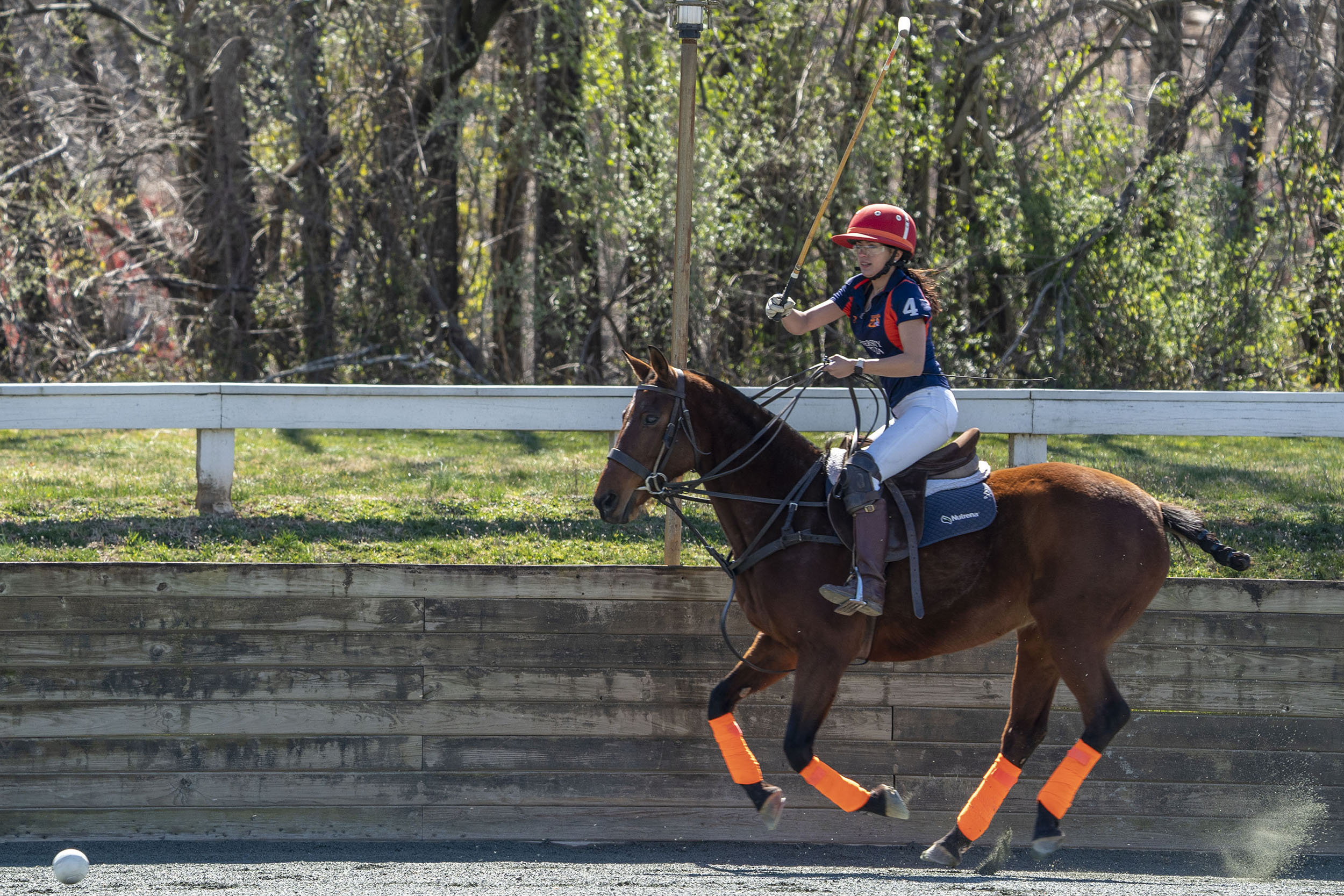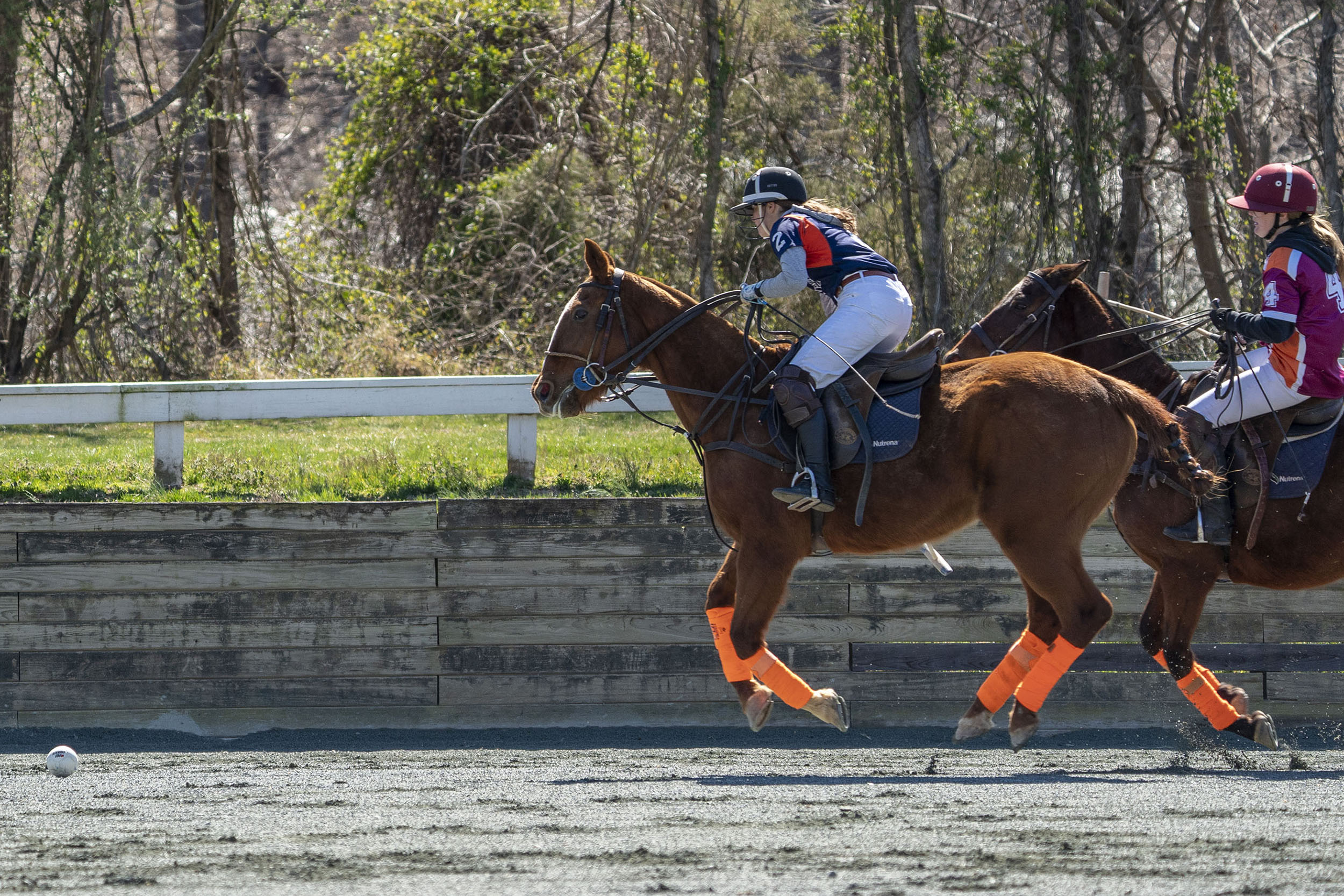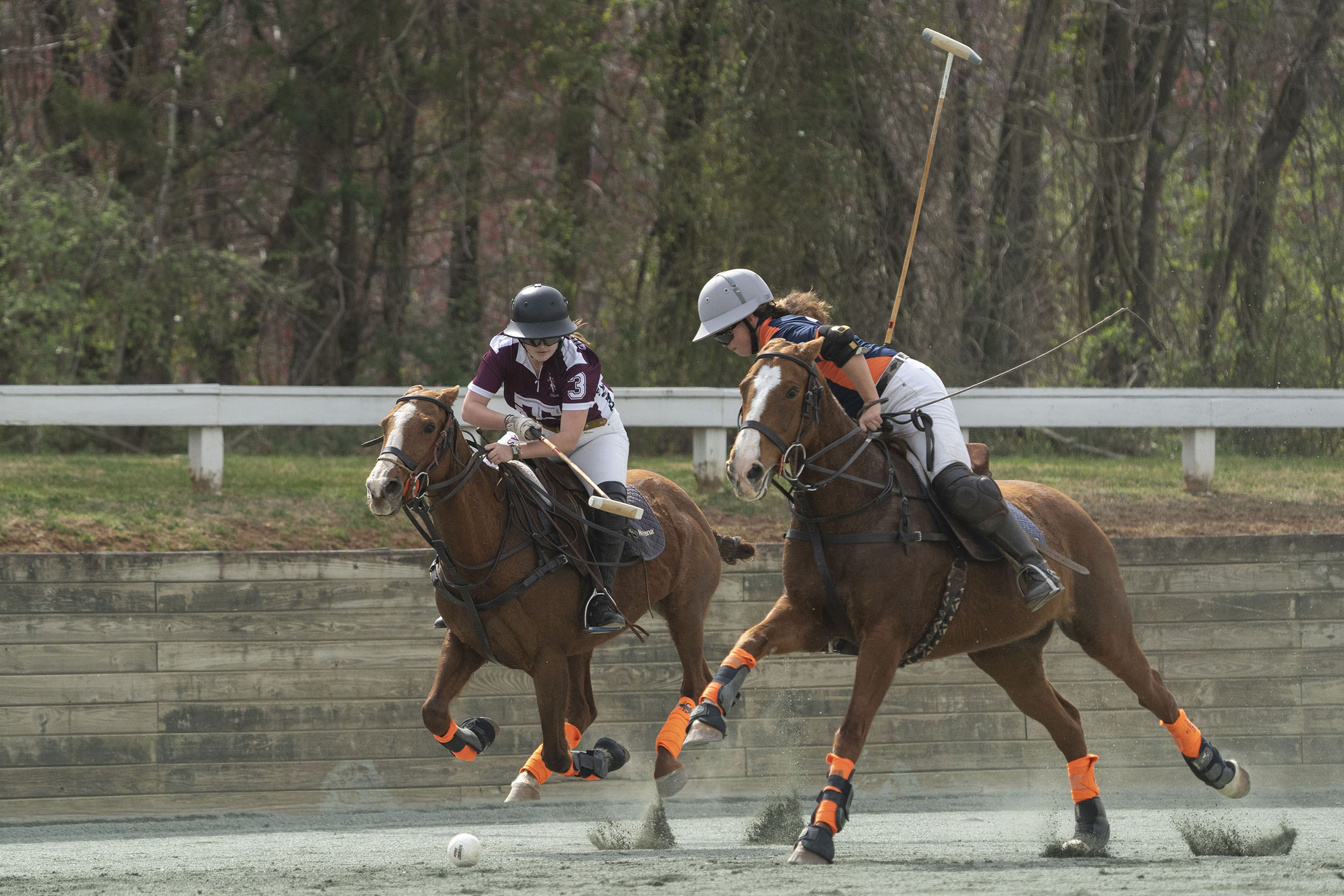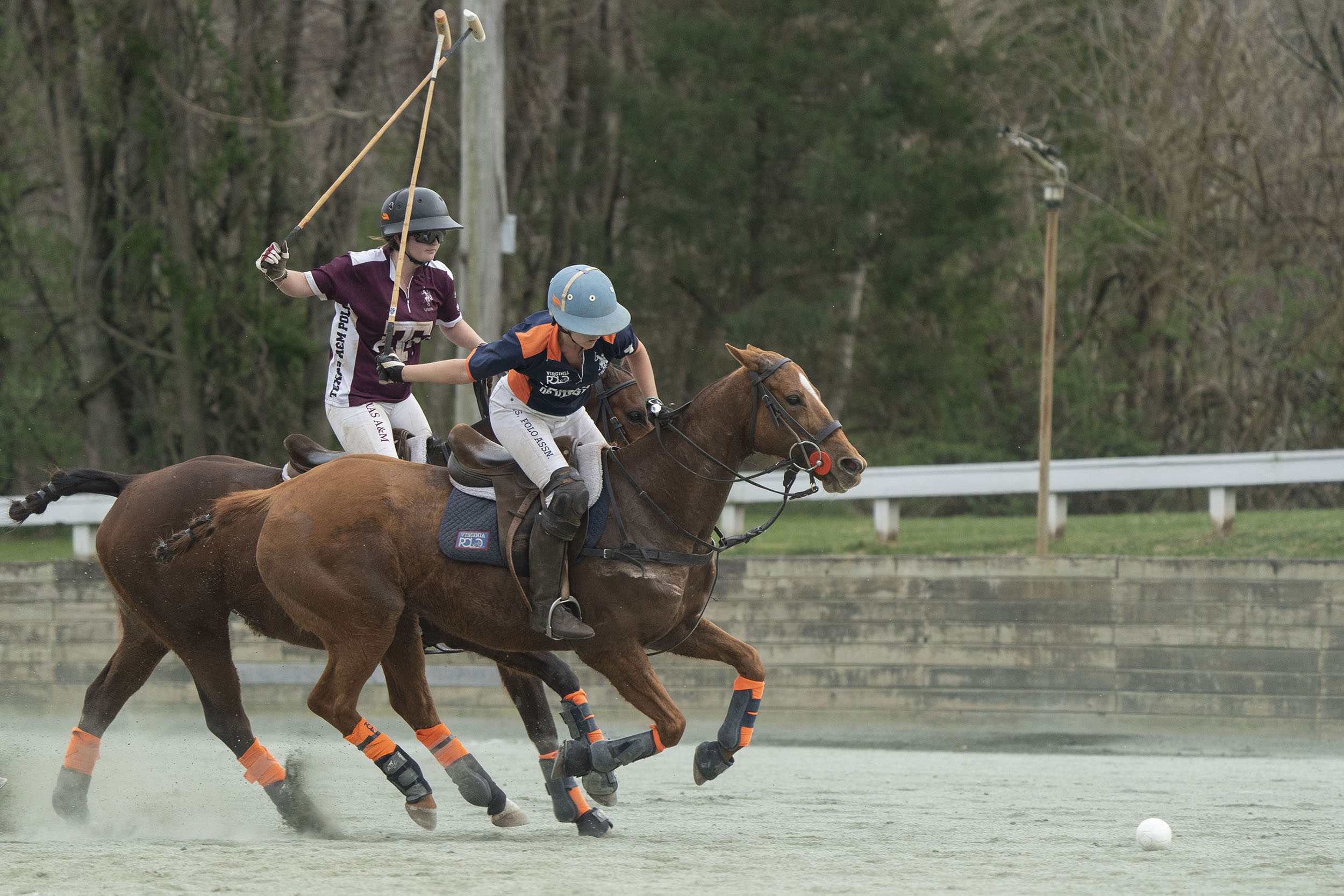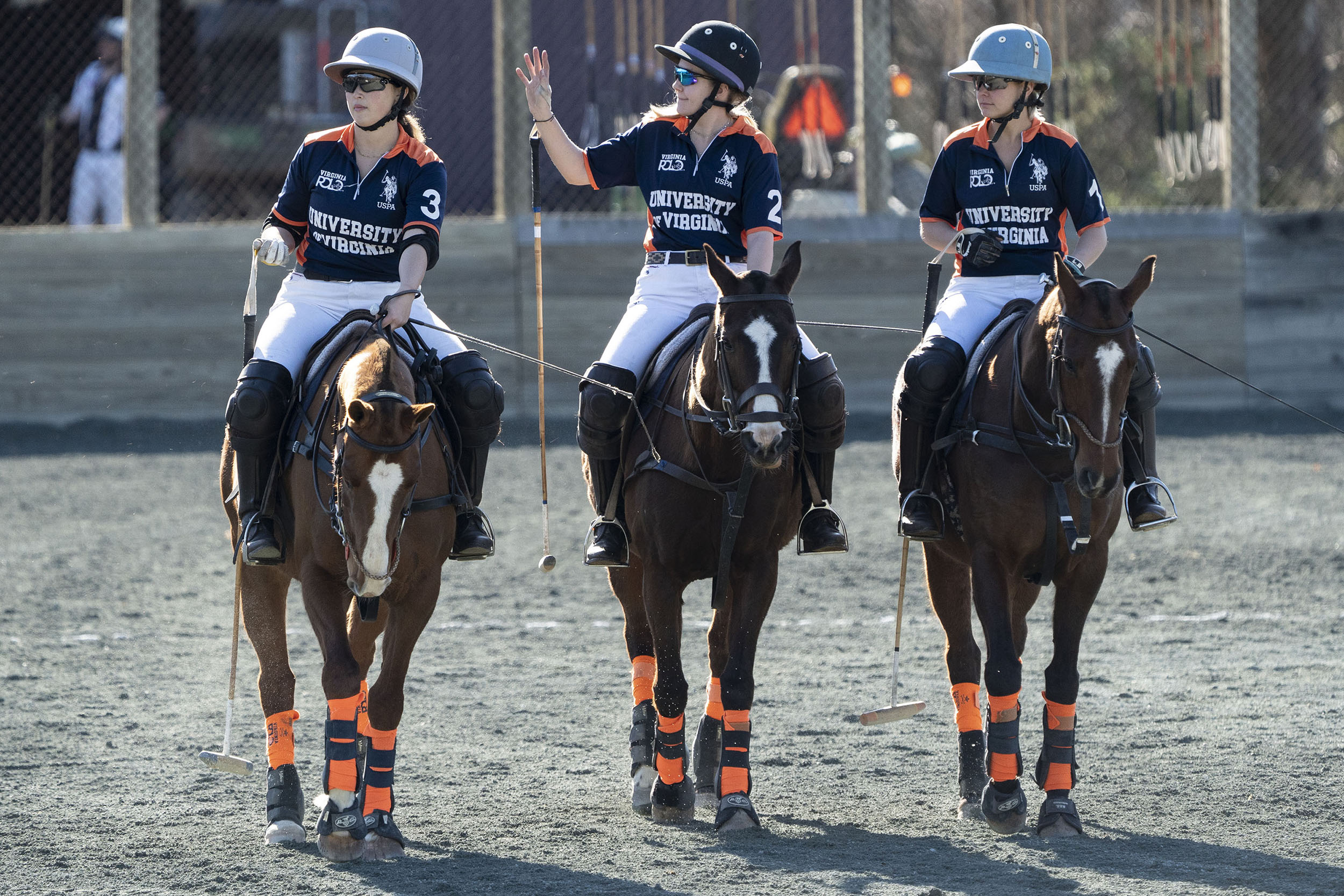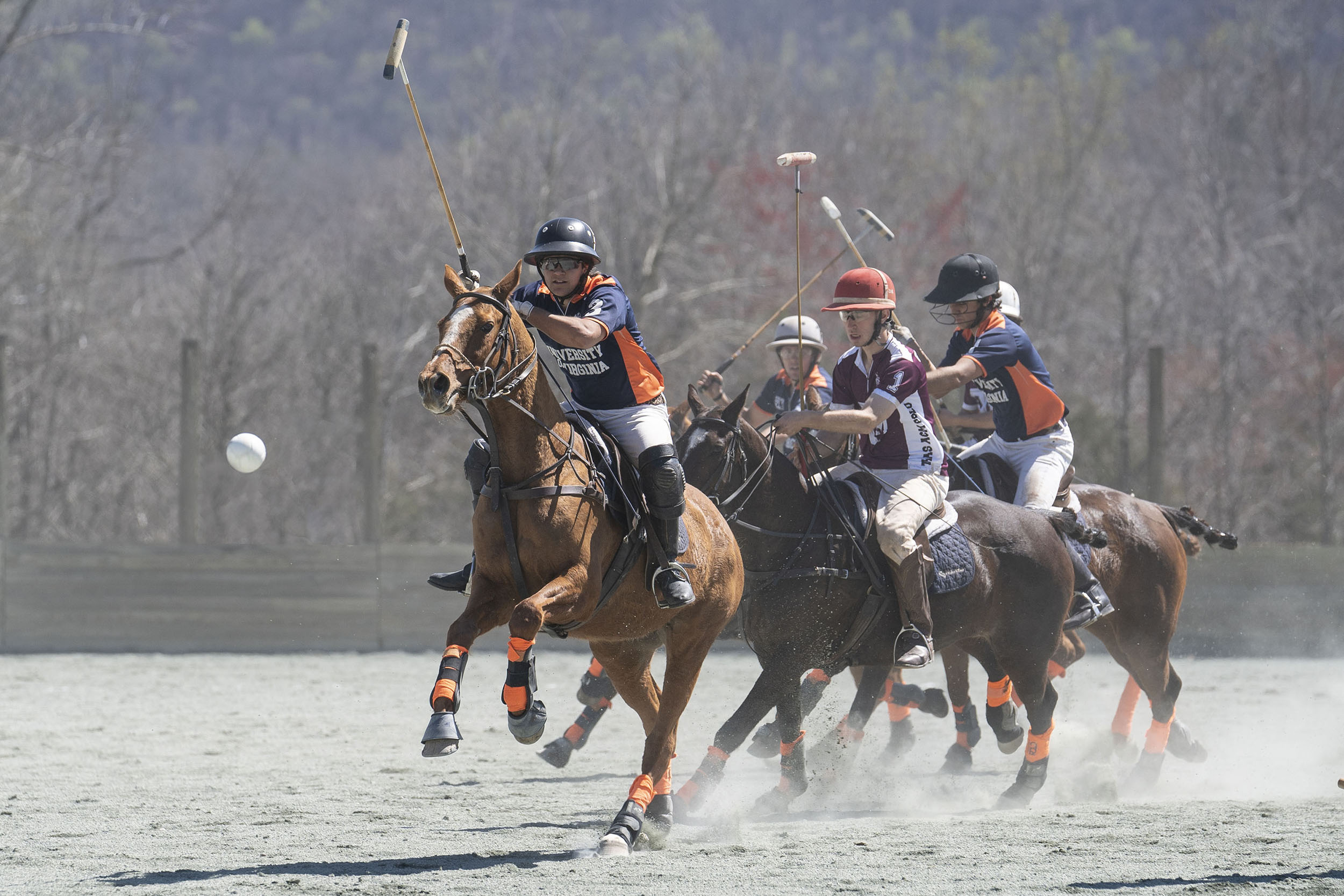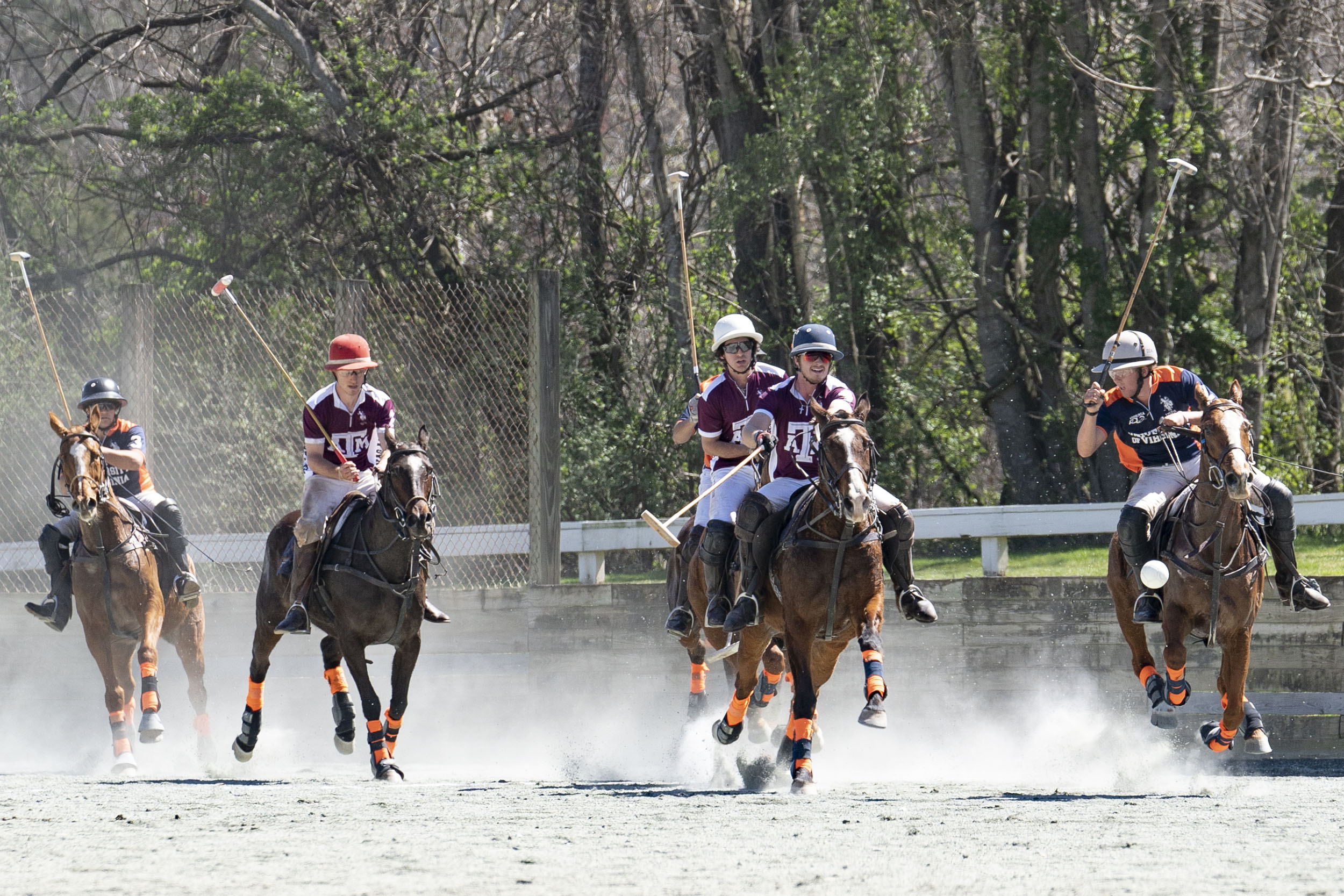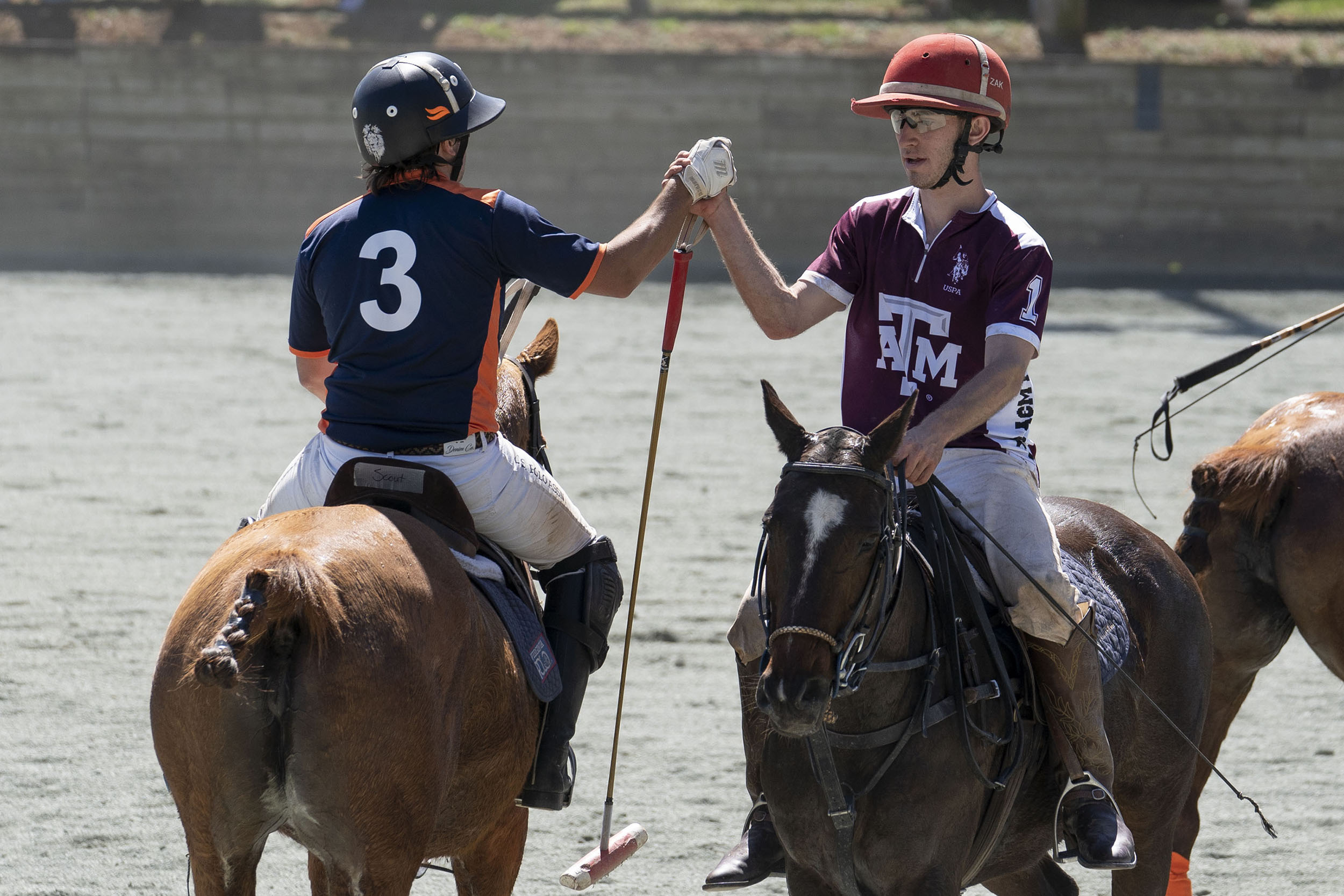It started in 1953 as a rag-tag collection of polo devotees. Now, seven decades later, the Virginia Polo Club has evolved into a well-oiled, student-run group of national intercollegiate champions.
The University of Virginia players and ponies will defend that title April 13 and 15 in Charlottesville, during a year when the Virginia Polo Club celebrates its platinum anniversary. On April 13, the women’s semifinals will be held at 10 a.m. and the men’s semifinals at 4 p.m. On April 15, the women’s final will be at 10 a.m. and the men’s final at noon.
To some, polo might look like hockey on horseback. Two teams of three riders each pursue an inflated white ball the size of a large grapefruit, striking at it with long-handled mallets while their horses gallop around a 400- by 150-foot arena.
It is a combination of gamesmanship and horsemanship as the rider working with the horse follows the ball, eyes opponents and keeps in constant communication with teammates as the ball sometimes gets lost in a tangle of legs and dust.
“Polo gets tagged with being elitist,” said Robert Rinehart, an alumni polo player and local resident who’s still involved with the club. “UVA Polo is unique and more of a proletariat offering in its affordability and in that everyone is equal when it comes to the work requirements to be a club member. My hope is that UVA students will continue to enjoy the experience and think fondly of it after graduation.”
The club first started on land rented from engineering professor E.J. Oglesby at his Brook Hill Farm. The players scrounged horses where they could and built a ramshackle shed barn with standing stalls to stable their steeds.
